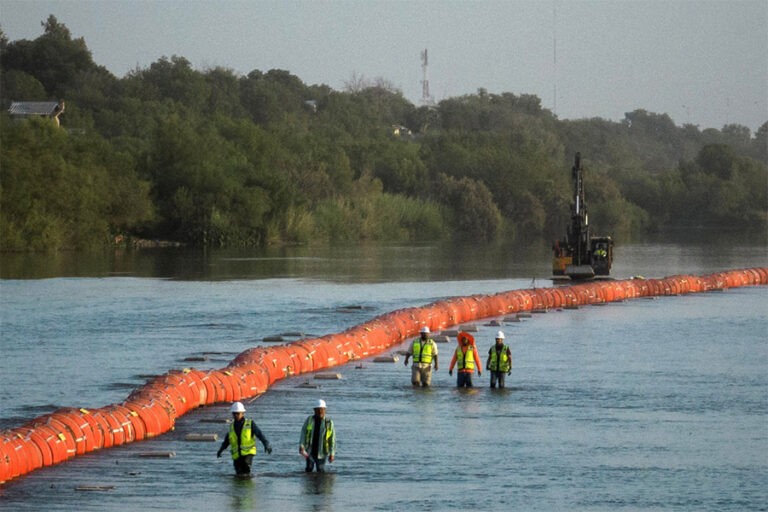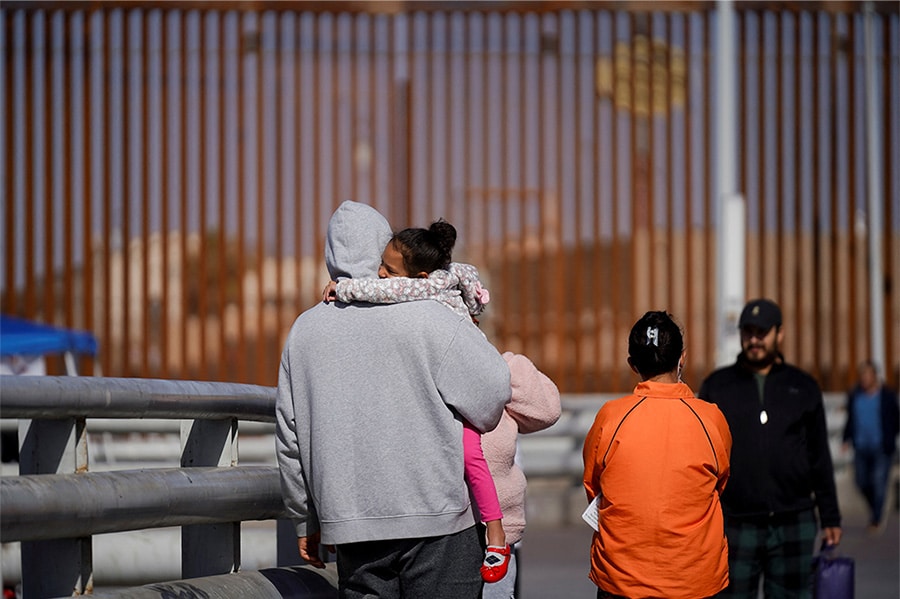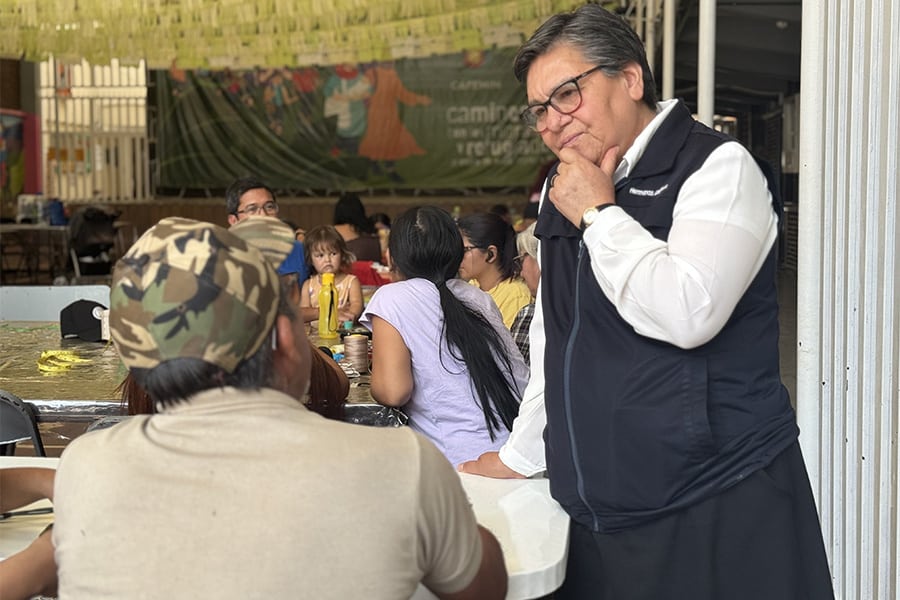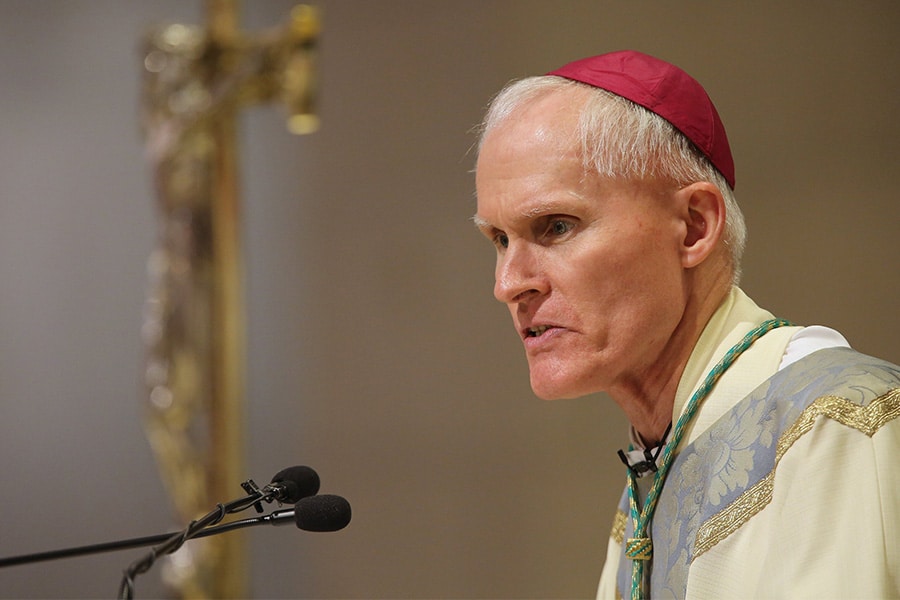A New Orleans-based federal appeals court has issued an order allowing buoys installed by Texas to deter migrants from crossing the Rio Grande to stay in place for now.
On Sept. 6, a federal judge ordered Texas to remove controversial floating barriers in the Rio Grande by the following week, and prohibited the state from adding or reinstalling additional buoys in the river aimed at reducing unauthorized border crossings. However, on Sept. 7, the 5th U.S. Circuit Court of Appeals halted the judge’s order, letting the buoys stay while the legal challenge continues.
Before the appeals court’s intervention, the judge’s Sept. 6 removal order was seen as a legal victory for the Biden administration, which opposed their use.
The barriers were recently installed on the Rio Grande as part of Texas Republican Gov. Greg Abbott’s latest attempts to stop migrants from crossing into the United States from Mexico under his “Operation Lone Star” program.
The U.S. Justice Department sued Texas in July arguing the buoys were installed unlawfully and should be removed. The lawsuit alleged the approximately 1,000-foot line of buoys, each 4 to 6 feet in diameter and strung together, also raised diplomatic, humanitarian and environmental concerns. The federal government further argued that Abbott violated federal law by deploying the barriers near Eagle Pass, Texas, without authorization from the U.S. Army Corps of Engineers, as the corps oversees all navigable waterways in the U.S.
In his preliminary injunction, U.S. District Judge David Alan Ezra for the Western District of Texas Austin Division ordered the state to remove the buoys by Sept. 15 at its own expense.
“Governor Abbott announced that he was not ‘asking for permission’ for Operation Lone Star, the anti-immigration program under which Texas constructed the floating barrier. Unfortunately for Texas, permission is exactly what federal law requires before installing obstructions in the nation’s navigable waters,” Ezra wrote.
The district judge’s interpretation of the Rivers and Harbors Appropriation Act of 1899 was strongly criticized by Texas’ lawyers in their appeal. Texas maintained the Rivers and Harbors Act does not ban buoys in the Rio Grande in Maverick County and that this stretch of river in the county “has never been commercially navigable.”
Texas also argued, “The buoys prevent illicit cross-border fording without obstructing river travel because they run with the current.”
Abbott’s administration also is facing allegations of inhumane treatment of migrants seeking to cross the border into Texas with its “Operation Lone Star” program. A recent report alleged the state directed its personnel to withhold water from migrants despite extreme heat, and that state officials have set “traps” of razor wire-wrapped barrels in parts of the river, which in turn have increased the risk of migrants drowning by forcing them into deeper, more treacherous portions of the river.
In its appeal, Texas told the appellate court that “the buoys save lives by directing aliens to ports of entry and deterring water crossings.” The state argued that “no one has attempted to climb the buoys, and no injury from them has been reported.”
According to The Associated Press, Texas officials claimed the body found near the floating barriers in early August appeared to indicate the person had drowned before encountering the buoys.
The use of the buoys and other parts of the program including razor wire have been condemned by Catholic leaders, who called them inhumane. While Abbott is a practicing Catholic, and frequently cites his faith on policy positions such as protecting unborn children from abortion, his policies toward migrants and refugees have brought him into conflict with the state’s Catholic bishops who have challenged them as incompatible with the church’s teaching on the dignity of the human person and biblical mandates to welcome and care for strangers.
In an Aug. 31 post on X, formerly known as Twitter, Archbishop Gustavo García-Siller of San Antonio wrote that the “razor wire between US and Mexico is a barbaric practice, a cruel practice.”
“There are other more human ways to engage with people,” he wrote. “Lord have mercy of the hundreds injured and move the hearts of those who make these cruel decisions to change their ways. Lord have mercy!”
Read More Immigration & Migration
Copyright © 2023 OSV News








